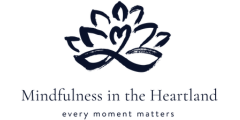Watch your thoughts; for they become words. Watch your words; for they become actions. Watch your actions; for they become habit. Watch your habits; for they become character. Watch your character; for it becomes your destiny. – Lao Tzu
The mind is a powerful, elegant, highly efficient tool evolved for the purposes of our survival.
One of its primary jobs is, and has always been, to keep us safe. In the days prior to our modern existence, the mind’s acuity to assess danger, make quick interpretations, and execute action had significant survival value. It could mean the difference between finding food to eat or being an animal’s dinner.
As we’ve moved into an existence less dependent on daily survival, the mind has retained its value in helping us navigate our way through the world. Its primary modus operandi continues to be the rudimentary function of keeping us safe from perceived harm.
As maintaining physical security has required less of our mental energies, the mind has taken up shop as the protector of our perceptions of self (ego). It now spends a great deal of time judging information, people, and situations as good /bad or right/wrong, even though they may not pose a physical threat but rather a threat to our ego’s perception of who we are and how we are perceived by others.
It is important to emphasize here that the goal of keeping us safe does not necessarily equate to keeping us inspired or fundamentally satisfied. Left to the mind’s decision-making, we may indeed construct an existence that is predictable and “safe” from our vantage point. However, this does not in any way suggest that we will be happy within this existence.
If we wish to maximize our potential for growth and personal satisfaction, we should consider moving away from allowing the mind’s incessant ramblings to dictate decision-making and behavior.
We would be better served to cultivate the faculties of discernment than maintain an outright dependence on the mind’s ability to judge. Discernment is a more holistic approach, as it incorporates not only mental judgement, but factors in our acquired wisdom, instincts, and value systems.
By operating in the world through the gaze of discernment, we move away from the constant judgement of people and situations as good/bad or right/wrong, and begin to operate from a place of what is true for us as individuals. Decision-making no longer becomes about forcing the world to meet our expectations, but rather, shaping our lives through our decisions to align with our personal truth. This is a subtle but powerful shift.
Are you able to recognize when you are being reactive versus responsive? What are the indicators that you are in one mode or another?
Please feel free to leave a comment. What you say could be helpful to someone else!
